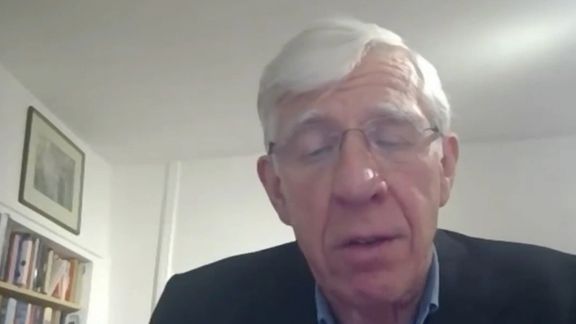Straw said the only possible obstacle to paying the debt was potential United States sanctions, which threaten punitive action against any third party dealing with Iran’s financial sector. But Straw suggested this was unlikely given past US behavior in similar circumstances.
“When there was previously a Democrat [Party] government in power in Washington, and John Kerry was the secretary of state, he arranged for about $2 billion to be paid to the Iranian government – [money] the US owed - the money was put on a plane,” Straw said. “The United States are not going to make a fuss about us paying a debt, if necessary in a similar way.”
On the same day, in January 2016, that the US flew to Tehran $1.7 billion it owed Iran, the Iranian authorities released four Americans, including Jason Rezaian, an Iranian-American journalist arrested in July 2014. Washington also freed seven Iranians held over alleged sanctions violations.
Straw said he was convinced that “from time to time the Islamic Republic of Iran has engaged in what amounts to hostage taking” and that while he could not be certain, he assumed this was the case with Nazanin Zaghari-Ratcliffe detained in Iran since 2016.
Straw has been a proponent of improving ties with Iran, arguing that the regime in Tehran is not the revolutionary government of 40 years ago and diplomacy can work to change its policies.
But the former foreign secretary insisted that, nonetheless, the money was owed: “If we pay, it will not create any further difficulties for Nazanin Zaghari-Ratcliffe and may very well ease her circumstances of release.”
International arbitration ruled in 2001 that London should repay money given by Iran for military hardware that was never delivered.
‘Complicated’ relations
Straw noted that Britain’s relationship with Iran was “complicated,” and had been so before the 1979 Revolution. While he said Britain had on occasions handled Zeghari-Ratcliffe’s case poorly – he cited Boris Johnson’s 2017 statement to a parliamentary committee that she was in Iran training journalists – the situation needed “very careful diplomacy” and that “shouting at them, or as some people have said, breaking off diplomatic relations, is going to get us absolutely nowhere.”
Straw said he shared the frustration of Richard Ratcliffe, who is in hospital for tests after a 21-day hunger strike outside the British foreign office in London to draw attention to the plight of his wife.
The issue of paying the £400 million ($540 million) debt is controversial in British politics, with Ratcliffe alleging his wife is forbidden from leaving Iran, effectively held ‘hostage,’ to pressure London to pay.
Taking ‘hostages’
While Straw has earlier argued that Britain should pay, others, including many within the ruling Conservative Party, oppose the move, arguing it would encourage Iran to take other hostages. An ex-detainee in Iran, theAustralian-British academic Kylie Moore-Gilbert, said Wednesday that the British government should repay the £400 million only in the form of “humanitarian aid.”
In a debate Tuesday in the British parliament Jeremy Hunt, a former Conservative foreign minister, said the UK should immediately pay “if necessary, by getting an RAF [British air force] plane to fly gold to Tehran.”
Zaghari-Ratcliffe, a project manager for Thomson Reuters Foundation, was arrested in 2016, convicted without a fair trial of working to overthrow the government and sentenced to five years jail. After being paroled early in 2020, she was charged with new offences and has been refused permission to leave the country. Other British citizens held in Iran are dual-nationals Anoosheh Ashoori, a businessman, and labor activist Mehran Raoof.








